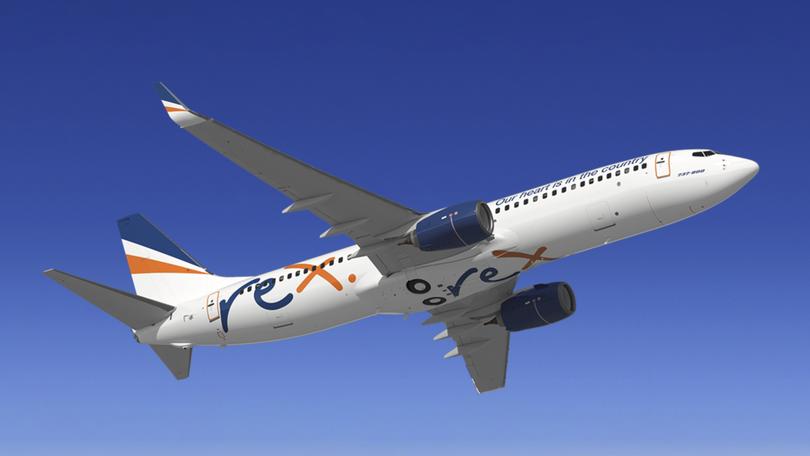EDITORIAL: Regional Australians will lose if Rex Airlines goes under
EDITORIAL: If Rex does perish, it is consumers who will lose, and those in regional areas most of all. It is only through competition that Australians can have any hope of affordable airfares.

Life in the Australian bush can be idyllic.
Just so long as you don’t need to travel anywhere to access services, do business or visit friends and family.
That will cost you big time.
Sign up to The Nightly's newsletters.
Get the first look at the digital newspaper, curated daily stories and breaking headlines delivered to your inbox.
By continuing you agree to our Terms and Privacy Policy.Regional Australians have long got the rough end of the pineapple when it comes to travel. Our nation is vast, meaning air travel is often the only option for those who need to move between regional centres. And those routes have generally come with enormous price tags.
For more than two decades, Rex Airlines has been a lifeline for many in the bush, providing vital connections for regional Australians to major centres. It provided crucial links for those living in some of the most far-flung parts of Australia from Burketown and Bedourie in Queensland, to Coober Pedy and Ceduna in South Australia and Monkey Mia in WA.
Those connections saved these residents round trips in the hundreds and thousands of kilometres.
Aviation is an unforgiving game, heavily weighted in favour of its biggest players. Australian aviation history is a graveyard littered with the wreckage of failed airlines, including most recently, the newest player to enter the regional market, Bonza Airlines.
But until recently, Rex had managed to defy the odds to do so while also turning a profit. Headwinds whipped up since the pandemic have changed that. The airline’s most recent results show its regular operations lost close to $1 million a week in the six months to December 2023.
EY has been called in to examine the books and the airline entered a trading halt ahead of a board meeting to determine its fate on Tuesday evening.
It doesn’t look good.
An ambitious expansion, including into the Qantas-Virgin dominated Sydney Melbourne and Brisbane routes may, in retrospect, prove to have been a folly.
Anthony Albanese appears to think so, with the Prime Minister saying he had “expressed concern” about Rex’s shift from regional airline to East Coast commuter.
As yet, there’s been no talk from the Government of a potential cash injection to keep planes in the sky.
However, Transport Minister Catherine King told the ABC on Tuesday that Labor was monitoring the situation and “stood ready”.
“You know, we think Rex is a pretty important part of the Australian aviation industry and stand ready to work with them to see whether there’s any assistance or anything the government needs to do,” Ms King said.
“What I would say is anything that the Government did, or if we were to do so, would really be looking at what is in the public interest to do.
“And we think very clearly it’s important to keep regional aviation and regional connectivity.”
The potential exit of another player is likely to increase the stranglehold of Qantas and Virgin.
If Rex does perish, so soon after Bonza, it is consumers who will lose, and those in regional areas most of all. It is only through competition that Australians can have any hope of affordable airfares.
Responsibility for the editorial comment is taken by WAN Editor Christopher Dore.
